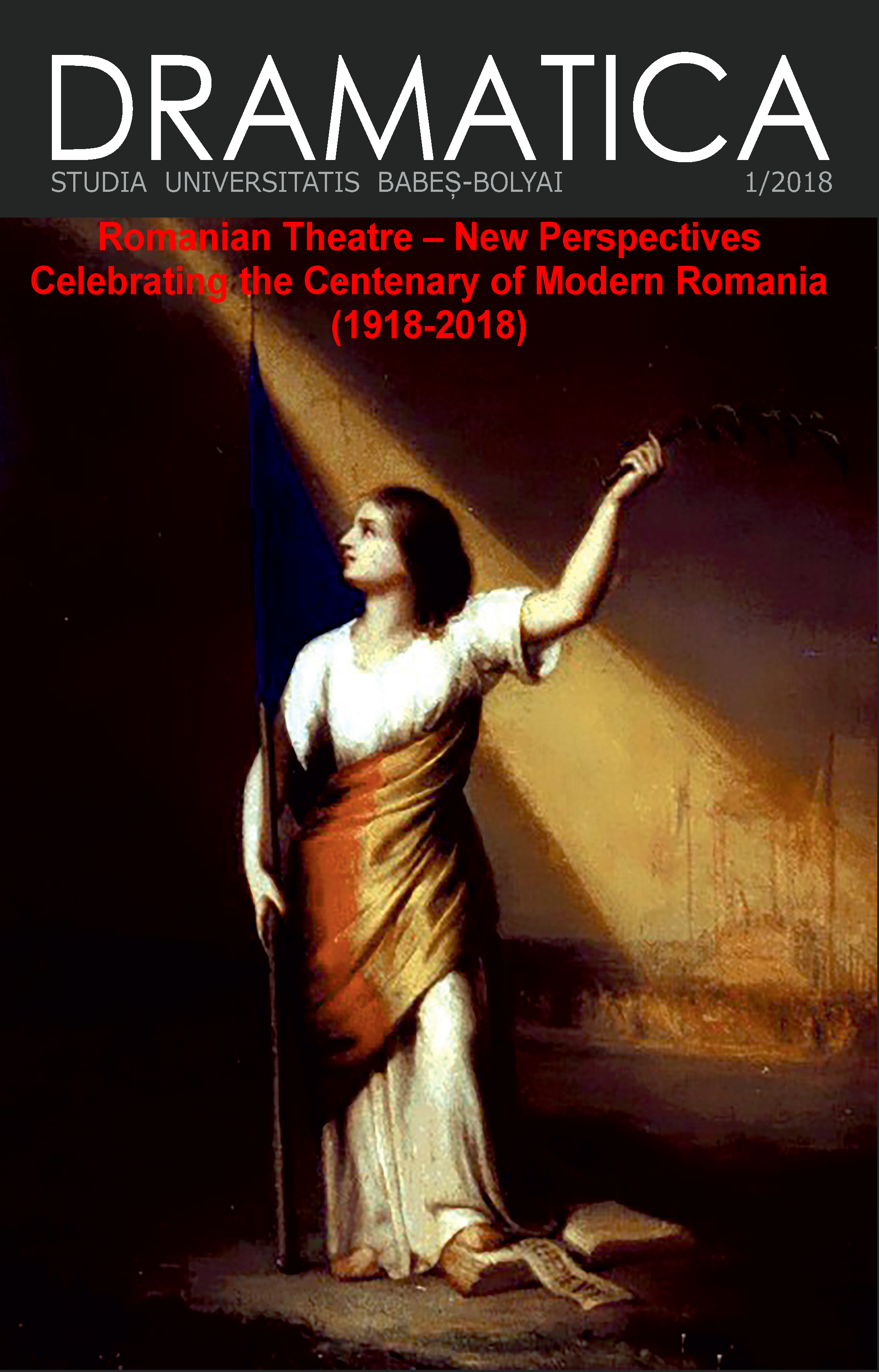Un jeu théâtral traditionnel roumain au carrefour des cultures (est-) européennes: "IROZII – les HÉRODES"
DOI:
https://doi.org/10.24193/subbdrama.2018.1.02Keywords:
TheAbstract
A Traditional Romanian Theatrical Performance at the Crossroads of (East-) European Cultures: Irozii - The Herods Play. The kind of theatrical performance upon which we focus our attention in the present study brings together sacred and profane masks, characters coming from the Christian tradition (present in the canonical texts of the Bible as well as in the apocryphal ones), characters who represent an image of a certain social order on the one hand (the priest, the shepherds, the sacred family) and of a possible disorder on the other hand (the lunatic of the village, the devils, the personification of Death). Taking into consideration the fact that the orthodox communities had difficulties in accepting religious theatre and that there are interesting similarities between these performances and the catholic medieval mysteries, a few questions will guide us through the matter: Where are these performances, mixing the archaic and the modern, coming from? Which are the links we can retrace back to the medieval religious theatre? And how did the neighbouring communities, Ukrainians, Hungarians, Germans, Serbs influence the evolution of the Romanian Herods plays?
References
BĂDILIŢĂ, Cristian. Evanghelii apocrife, Iaşi: Polirom, 2002.
CARTOJAN, N. Cărţile populare în literatura românească. 2 vol. Bucarest : Ed. Enciclo-pedică Română, 1974.
CHINDRIŞ, Ioan. « Blaj and the Beginnings of the Vifleim Custom among the Romanians », in Anuarul Institutului de Istorie « George Bariţ », 2005, 531-544 .
CORNAGLIOTTI, Anna. éd. La passione di Revello, Sacra rapprezentazione quattrocentesca di ignoto piemontese, Torino : Centro di Studi Piemontesi, 1976.
CUISENIER, Jean.. « Rois Mages dans les Carpathes ». in Simposio Rito y Misterio. La Coruña : Coleccion « Cursos, congressos y simposios », 1991, 27-38.
DAVIDSON, Clifford. Illustrations of the Stage and Acting in England to 1580. Early Drama, Art and Music Monograph Series. 16. Michigan: Kalamazoo, Medieval Institute Publications, 1991.
GITZA, Letiţia. FLOREA ,Mihai. « Manifestări de dramă populară în câteva regiuni ale ţării », Studii şi cercetări de istoria artei, n° 1 (1958) : 275-280 .
HERȚEG, Ioan et Floarea. in Memoria ethnologica. no. 11-13 (juillet-décembre, 2004).
KONIGSON, Elie. La Réprésentation d’un Mystère de la Passion à Valenciennes en 1547, Paris, CNRS, 1969.
KOOPMANS, Jelle. Le théâtre des exclus au Moyen-Âge, hérétiques sorcières et marginaux. Paris : Éditions Imago, 1997.
MÂLE, Emile. L’art religieux du XIIIe siècle en France, Étude sur l’iconographie du Moyen Âge et sur ses sources d’inspiration. Paris : Armand Collin, 1968.
MARIENESCU, Atanasie M.. Steaua Magilor sau Cântece a Nașterea Domnului Isus Christos. Biserica Albă : Tipografia J. Wunder, 1875.
NANU, Elisabeta. « Un manuscris cu Irozi al lui Picu Pătruţ », Anuarul Arhivei de Folclor, VI, s.l., (1942).
NUBERT CHEȚAN, Mihaela. Muzica în teatru popular romanesc (La musique dans le théâtre populaire roumain), Baia-Mare : Editura Etnologica, 2005.
ONA JOTU, Vasile. « Viflaiemul din Slatina ». Memoria Ethnologica, 8-9 (Juillet-Décembre 2003): 921-937.
OPRIȘAN, H.B.. Teatrul popular românesc. București: Editura Meridiane 1987, 111-112.
PAMFILE, Tudor. Sărbătorile la Români, Crăciunul, Studiu etnografic. Bucarest : Libr. Socec & Comp. & C. Sfetea, 1914, p. 155.
POP-CURȘEU, Ștefana. Pour une théâtralité picturale. Bruegel et Ghelderode en jeux de miroirs. Cluj-Napoca : Casa Cărţii de Ştiinţă, coll. Teatru-Eseuri, 2012.
STANCIU, Carmen. « Metamorfozele teatrului de păpuși în România », Yorick, (mai 2012).
VRABIE, G.. « Teatrul popular ». in Studii şi cercetări de istoria artei, n° 3-4, (1957) : 485-562.
VULCĂNESCU, Romulus. Măștile populare. Bucarest: Ed.Științifică, 1970.
VULPESCU, Mihail. Irozii, Păpușile, Teatrul țărănesc al Vicleimului, Scaloianul și Paparudele. Bucarest: Tipografia Ziarul Universul, 1941.
WEINHOLD, Karl. Weihnachtspiele und Lieder aus Süddeutschland und Schlesien. Wien, 1875.
YOUNG, Karl. The Drama of the Medieval Church. 2 vol.. London : Oxford University Press, 1951 (1ère ed. 1933).
Downloads
Published
How to Cite
Issue
Section
License
Copyright (c) 2018 Studia Universitatis Babeș-Bolyai Dramatica

This work is licensed under a Creative Commons Attribution-NonCommercial-NoDerivatives 4.0 International License.


